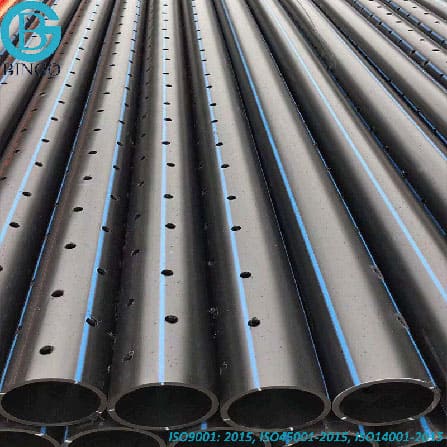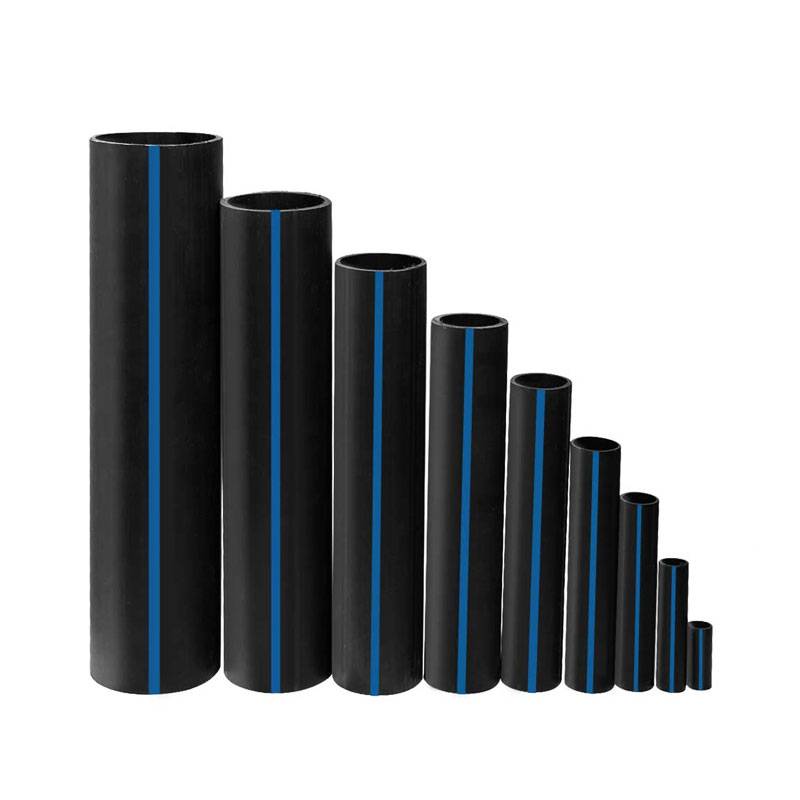Recognizing the Key Benefits of HDPE Pipeline for Water and Wastewater Administration
The usage of HDPE pipeline in water and wastewater administration presents numerous advantages that merit consideration. Its extraordinary longevity and lengthy lifespan make it a favored choice for many projects. In addition, the material's resistance to corrosion and chemical damages enhances its dependability in various atmospheres. The benefits prolong beyond simply long life and resistance. Pipe Manufacturing Midland TX. Exploring its cost-effectiveness and ecological impact discloses much more engaging factors for its extensive adoption in modern facilities
Phenomenal Toughness and Long Life

HDPE pipeline sticks out for its phenomenal durability and long life, making it a preferred option in water administration systems. Built from high-density polyethylene, these pipelines can endure substantial stress and stress, guaranteeing reliable efficiency gradually. Their robust nature permits them to sustain severe ecological problems, including temperature level variations and dirt motions, which can cause other products to fail.
The life-span of HDPE pipelines typically goes beyond half a century, providing a cost-effective option for districts and markets alike. Furthermore, the material's light-weight properties simplify installation, decreasing labor prices and timeframes. This durability minimizes the requirement for regular repair work or replacements, further enhancing its economic appeal.
In water administration applications, the reliability of HDPE pipelines suggests fewer disturbances and enhanced service continuity, making them indispensable to lasting facilities advancement. The mix of toughness and durability solidifies HDPE's function as a keystone in effective water monitoring remedies.

Resistance to Corrosion and Chemical Damage
While lots of materials yield to corrosion and chemical damage gradually, HDPE pipes exhibit remarkable resistance, making them excellent for various water monitoring applications. This strength stems from the molecular framework of high-density polyethylene, which is inherently non-reactive and does not corrode like metals or break down from exposure to extreme chemicals. Consequently, HDPE is highly effective in environments with hostile substances, such as wastewater systems that might contain acids, bases, and organic solvents.
In addition, HDPE pipelines can stand up to ecological factors such as soil level of acidity and saline problems, better enhancing their suitability for varied applications (Pipe Supplier American Plastics Midland). Their capacity to preserve architectural honesty over time minimizes the risk of leakages and failings, which is crucial in making sure the safety and security and dependability of water circulation and wastewater administration systems. The resistance to deterioration and chemical damage significantly contributes to the overall effectiveness and longevity of HDPE piping services.
Cost-Effectiveness and Economic Benefits
When taking into consideration the monetary implications of water management systems, the cost-effectiveness of HDPE pipes ends up being evident. These pipes provide reduced installment and upkeep prices contrasted to traditional products like steel or concrete. Their light-weight nature streamlines transport and setup, resulting in minimized labor expenses. In addition, HDPE pipes show a long lifespan, often going beyond 50 years, which translates to fewer substitutes and long-lasting financial savings.
In addition, the resistance of HDPE to corrosion and chemical damage minimizes the requirement for expensive fixings and substitutes. The pipes likewise sustain effective water flow, decreasing energy expenses related to pumping systems. By reducing leakages and water loss, HDPE pipes add to substantial economic advantages for communities and industries alike. On the whole, the first financial cipp liner installation investment in HDPE piping can generate significant financial returns over the lifespan of the water monitoring system, making it a sensible option for lasting framework development.
Ecological Sustainability and Lowered Effect

Versatility and Flexibility in Setup
Due to their one-of-a-kind residential properties, HDPE pipes provide impressive convenience and versatility in installment, making them appropriate for a large range of applications. Their lightweight nature allows for simpler handling and transport, decreasing labor costs and setup time. HDPE pipes can be bent and shaped to fit different surfaces and job requirements, which is particularly useful in challenging environments.
Additionally, their resistance to deterioration and chemical damage enables setup in diverse settings without the requirement for specialized protective layers. The ability to fuse joints develops a continuous, get more leak-free system, improving the overall integrity and reliability of the setup. HDPE's adaptability likewise accommodates ground activity, minimizing the danger of damage in locations susceptible to shifting dirt. Overall, these attributes make HDPE pipelines not only versatile yet likewise a preferred selection for water and wastewater administration systems.
Often Asked Questions
How Does HDPE Pipeline Contrast to PVC in Water Monitoring Applications?
HDPE pipe uses remarkable flexibility, resistance to corrosion, and resilience contrasted to PVC. Its lighter weight promotes simpler setup, while its lengthy life-span minimizes substitute prices, making HDPE a recommended option in water monitoring applications.
What Is the Lifespan of HDPE Water Lines Under Typical Problems?
Under common conditions, HDPE pipes can have a lifespan ranging from 50 to 100 years. Their durability and resistance to deterioration add to their long-lasting performance in different applications, making them a reputable selection for framework.
Are HDPE Piping Recyclable After Their Service Life?
Yes, HDPE pipelines are recyclable after their solution life. hdpe pipe suppliers Midland TX. They can be processed and repurposed right into new items, greatly decreasing ecological influence and advertising sustainability within the industry, making them an environmentally friendly selection for piping services
What Is the Installation Refine for HDPE Pipeline?
The setup procedure for HDPE pipes entails site preparation, trenching, pipeline fusion or mechanical signing up with, backfilling, and pressure testing. Proper methods guarantee a long lasting and effective system for transferring water and wastewater properly.
Can HDPE Piping Be Utilized for Both Safe And Clean and Non-Potable Water Equipments?
Yes, HDPE pipelines can be used for both safe and clean and non-potable water supply. Their flexibility, resilience, and resistance to corrosion make them ideal for numerous applications, ensuring safe and effective transport of water in different contexts.